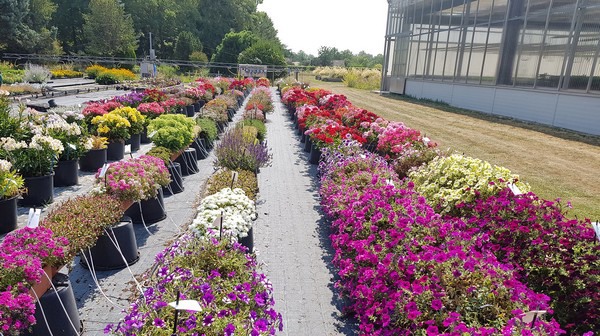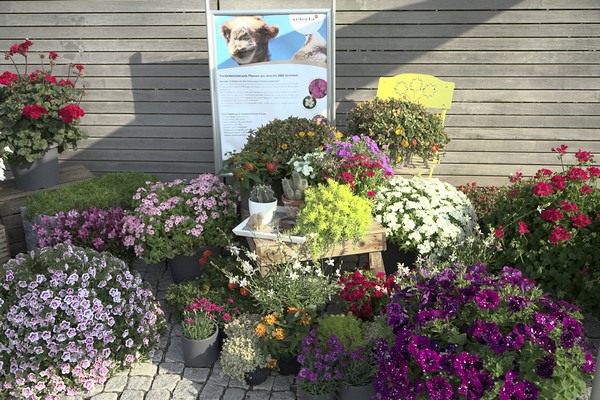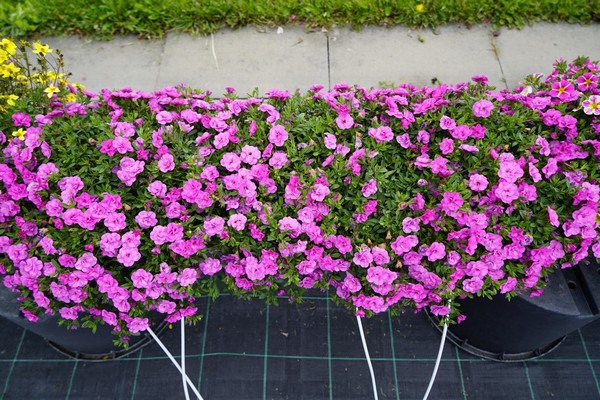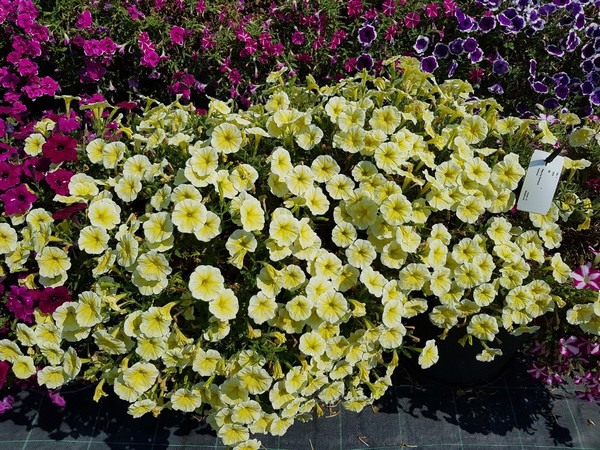The European summers are getting hotter and drier. This is having an increasing impact on the green industry. And the end consumer is also increasingly concerned with the question of which plants can survive heat waves, require small amounts of water and are therefore ecologically valuable.

Trial drought-tolerance
In order to respond to these developments and answer the questions, Selecta one, in cooperation with the research institute LVG in Heidelberg, has tested part of its bedding and balcony range for drought tolerance. In summer 2020, 83 varieties from 23 different crops were planted out on a container area and cultivated with only around 50% of the optimum amount of water. From each variety, a corresponding comparison culture was supplied with optimal water quantity: Thus, crops such as Delosperma and Sedum were irrigated with 2 l/h, Pelargonium and Phlox for example with 4 l/h, Calibrachoa and Osteospermum with 8 l/h and Bidens and Petunia with 12 l/h.

The criteria "overall impression" and "irreversible plant damage" were evaluated. The evaluation table published by Selecta one and LVG Heidelberg shows the varieties that were rated good to very good in the period from week 24 and week 37 regarding the above criteria.

MiniFamous® Uno Double PinkMania!
"It was astonishing for us that in the test carried out at the LVG in Heidelberg, in addition to varieties known to be adapted to drought, such as Sedum and Delosperma, even varieties from the Calibrachoa range, such as MiniFamous Uno Double 'LavTastic', 'Rave Pink '16' and 'PinkTastic' and Petunia such as 'NightSky', 'Famous Laser Pink' and 'Royal Sky' defied the drought and were rated as good to very good with only 50% of the optimum water quantity. With these test results, we want to draw attention to our drought-tolerant varieties in order to respond to the demand of our customers and end consumers on this topic," says Sebastian Mainz (Senior Trade Marketing Manager at Selecta one).

Ute Ruttensperger from LVG Heidelberg adds: "Against the background of global climate change, more frequent and more intensive drought events are expected. These extremely hot summers will also bring new challenges in terms of the design and irrigation of plantations in residential areas and gardens. Local authorities and consumers will increasingly have to adjust to more irrigation in the coming period. The demand for varieties with higher drought tolerance and adapted growth cycles will also increase. Especially flowering plants have a high biodiversity benefit. Breeding must respond to this. Targeted information at the POS is also important in order to maintain a broad diversity in plant use."
For mor e information:
e information:
Selecta One
www.selecta-one.com
